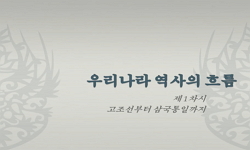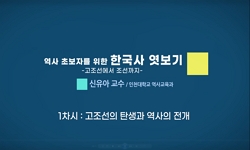China launched Northeast Borderland History and the Chain of Events Research Project (hereinafter, referred to as Northeast Project) in 2002, which can be interpreted as one of the serial attempts towards Neo Sinocentrism. Based on the concept of Unit...
http://chineseinput.net/에서 pinyin(병음)방식으로 중국어를 변환할 수 있습니다.
변환된 중국어를 복사하여 사용하시면 됩니다.
- 中文 을 입력하시려면 zhongwen을 입력하시고 space를누르시면됩니다.
- 北京 을 입력하시려면 beijing을 입력하시고 space를 누르시면 됩니다.
https://www.riss.kr/link?id=A82645706
- 저자
- 발행기관
- 학술지명
- 권호사항
-
발행연도
2010
-
작성언어
Korean
-
주제어
중국 동북공정 ; 고조선 ; 단군조선 ; 기자조선 ; 한사군 ; China’s dongbei project ; Go-joseon ; Hansagun ; Dangun-joseon ; Gija-joseon ; Hansa-gun
-
등재정보
KCI등재
-
자료형태
학술저널
- 발행기관 URL
-
수록면
5-37(33쪽)
- 제공처
-
0
상세조회 -
0
다운로드
부가정보
다국어 초록 (Multilingual Abstract)
China launched Northeast Borderland History and the Chain of Events Research Project (hereinafter, referred to as Northeast Project) in 2002, which can be interpreted as one of the serial attempts towards Neo Sinocentrism. Based on the concept of United Multiethnic Nation, China claims that Chinese history includes the history of every ethnic group who resides in China as Chinese nationals. Accordingly, the Northeast project reveals China’s intention to incorporate the history of its neighboring countries in the Northeast Asian region into Chinese history. This stirred Korean historian community and consequently resulted in proactive research on Korean ancient history such as Goguryeo dynasty.
This paper studies on the Chinese publications on Go-Joseon and Hansa-gun and reached a finding that Chinese historians distorted Korean history in order to develop the Northeast Project. The publications distorted not only Goguryeo history but also the roots of Korean ethnicity and pre and post history of Go-Joseon, which is the first established dynasty in Korean history. Asserting Gija-Joseon and Wiman-Joseon, Chinese history academia does not recognize the existence of Dankun-joseon and Dankun mythology. In addition, Chinese historians claim Hansa-gun Pyongyang theory denying Korean historians’ Hansa-gun Yodong theory.
The paradox from my finding is that they utilize the theories from Korean history academia as the base of their claims. It is unfortunately true that some of Korean historians also have doubtful views on the existence of Dangun, Dangun-Joseon, Gija-Joseon, Wiman-Josen, and Pyeongyang theory. However, if Korean historian community fails to the substantiation of Dangun, as the founder of Go-Joseon and Dangun-Joseon, the Korean ancient history will lose its identity as an independent nation and will be defined as a colony of China governed by the extreme influence of Chinese politics and
culture as Chinese academia asserts. The Chinese historian community’s denial of existence of Dangun-Joseon paradoxically presents that we need to make the commitment to the elaborate research on the substantiation of Dangun-Joseon.
동일학술지(권/호) 다른 논문
-
- 고조선단군학회
- 김용환(Kim, Yong-Hwan)
- 2010
- KCI등재
-
- 고조선단군학회
- 金東實(Kim, Dong-Sil)
- 2010
- KCI등재
-
중국 신석기시대 陶器에서 표면 장식을 대하는 기본 입장
- 고조선단군학회
- 金炳模(Kim, Byoung-Mo)
- 2010
- KCI등재
-
신시고국 환웅족 문화의 ‘해’ 상징과 천신신앙의 지속성
- 고조선단군학회
- 임재해(Lim, Jae-Hae)
- 2010
- KCI등재






 KCI
KCI DBpia
DBpia





